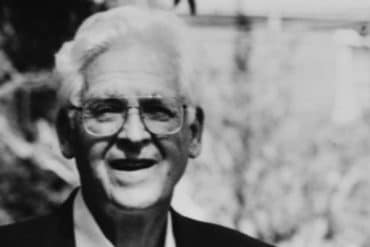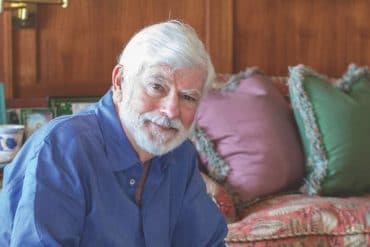 All things considered, Jules Embry-Pelrine is looking pretty good. With his legs out-stretched and crossed casually at his ankles, you’d never know that just days ago those same legs carried him over one hundred miles in twenty-four hours, a feat of endurance unheard of on Nantucket. Even the idea of logging that distance by car on the island in a single day is hard to imagine. So why, on the eve of his thirtieth birthday, with a full moon and a star-filled sky lighting his way, did this Nantucket native set out to run the impossible?
All things considered, Jules Embry-Pelrine is looking pretty good. With his legs out-stretched and crossed casually at his ankles, you’d never know that just days ago those same legs carried him over one hundred miles in twenty-four hours, a feat of endurance unheard of on Nantucket. Even the idea of logging that distance by car on the island in a single day is hard to imagine. So why, on the eve of his thirtieth birthday, with a full moon and a star-filled sky lighting his way, did this Nantucket native set out to run the impossible?
There are several starting lines to Jules’ story, but perhaps it’s best to begin five years ago. In the spring of 2008, Jules’ brother Ammon suffered a number of seizures, leading doctors to find a golf ball-sized tumor pressing against his brain. “Upon removing it, the doctors tested it and it came back positive for cancer,” Jules says uneasily, “a cancer that,” he pauses, “that does not respond to chemo. So the only option was further surgery.” Another brain operation followed and Ammon’s health ebbed and flowed. “After the second surgery, they decided on a round of radiation treatment, an hour of radiation everyday for a month,” Jules says. “Ammon had to drive to the hospital everyday, and afterwards he was just exhausted. He would want to sleep for the rest of the day.”
Ammon had since moved to the Boston area, so his commute to the city’s various medical centers was only a fraction of the distance traveled by patients from Nantucket. “I began to think about how much more difficult it would be if he had to get on a boat or a plane after receiving treatment and return to the island,” Jules says. “That really cemented it for me that the Marla Lamb Fund would be something great to support. Every cent do- nated to the fund goes directly to helping pay for the travel and hotel expenses of islanders receiving treatment in Boston and elsewhere off island.” So it was that when Jules decided to commemorate his thirtieth birthday with a long distance run, he pledged to use the run to raise money for the Marla Lamb Fund.
Since college, Jules has run competitively and often makes the local news for besting opponents in island races like the Rock Run, but he had never attempted such an extreme distance. It raises the obvious question: why run for twenty-four hours? Why not just do a 5k or a marathon? To this Jules offers several explanations, but his overriding reason transcends running and centers on empathy. “Any kind of illness, but especially cancer, is such a psychological and spiritual and physical endurance test,” he says. “I had it in my mind that if I can push myself just a little bit for twenty-four hours, that’s a small modicum of what someone has to go through with their daily treatments and the fluctuations in their health.” With that in mind, he set off running down Old South Road at 7 p.m. on September 19th. It would be twenty-four hours until he’d come to stop.
During the first four hours, fellow runner Giles Gregory joined him on the trail. Giles is one of the few other island residents known to compete in ultra marathons (distances more than 26.2 miles), and he had run a 100k race with Jules in 2010. “I just wanted to help him out. I knew not too many people would join him because they think it’s crazy,” Giles says. “It’s a personal thing. There is nothing harder than running a hundred miles. Once you’ve run a hundred miles, you feel like you can do anything.” The two men ran almost nonstop, pausing only momentarily to pick up water and energy bars at refueling coolers that Jules had set out strategically around the course. “You don’t stop,” Giles says, “your legs will seize up on you.”
After twenty miles, Jules was left to continue on alone. He ran through the night, never stopping and maintaining an average fifteen-minute-mile pace. His mind became a rolling checklist, monitoring his body and his calorie and fluid intake. At the thirteenth hour mark, he had surpassed his longest time running continuously, logging around fifty-five miles. He now entered the unknown. How would his body respond? Could he endure?
Four hours later, his stomach began cramping up, forcing him to alternate from running to race walking. “I realized that I had gone seventeen hours and I was doing well, but I still had seven hours left, which was a lot,” he says, “but I just kept pushing.” As pain and doubt crept over him, he thought about his brother and the courage and perseverance of patients like him who had no other choice but to push through the next chemo treatment, the next round of radiation, the next surgery. “Cancer doesn’t take a day off,” Jules kept telling himself. And so, too, he would push through until, under the shroud of night, barefoot and shirtless, Jules came to a stop outside his father’s house on Miacomet Road at 7 p.m. He had run 100.5 miles in twenty-four hours.
“If you try and wait for the perfect time, that perfect time may never come, so do what you can when you can,” Jules says today, reflecting on his run. “Many people wait for the perfect time to make a donation to charities like the Marla Lamb Fund. They want to make a big donation, but then something comes up—the car needs a new clutch, they need to make a mortgage payment—and they can’t donate. But in reality, if all those people just gave five or ten dollars, that would make a big difference.” To date, Jules’ efforts have raised thousands of dollars for the Marla Lamb Fund, and donations continue to funnel in. As for his next long distance run, Jules has his sights set on a one-hundred-mile race in New Hampshire next fall. Until that time, he will continue running and enjoying time with his brother, whose health continues to improve one step and a time.





